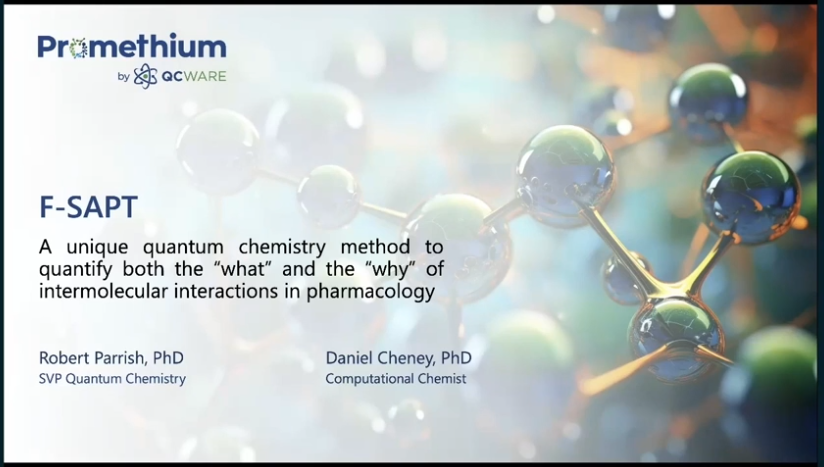

Join us for an in-depth webinar on F-SAPT (Functional group symmetry-adapted perturbation theory), a powerful quantum chemistry method that goes beyond standard techniques by breaking down intermolecular interactions into their fundamental components. Unlike traditional methods, F-SAPT not only quantifies the strength of interactions but also explains the *why* behind them, offering insights into the contributions from electrostatic, dispersive, and repulsive forces. This level of detail is invaluable for researchers in pharmacology seeking to design more effective and targeted drugs.
In this session, you'll learn how F-SAPT can be applied to drug discovery and pharmacology to optimize drug-receptor interactions and make more informed decisions about molecular design. Our experts will provide real-world examples and demonstrate how F-SAPT can enhance your understanding of molecular forces, leading to better outcomes in drug development. Don’t miss this opportunity to explore how F-SAPT is transforming the field of drug design.
- Learn the basics of F-SAPT and its unique approach to quantum chemistry.
- Understand how F-SAPT breaks down intermolecular forces into key components.
- Apply F-SAPT to drug discovery for optimized drug-receptor interactions.
- Explore real-world applications of F-SAPT in molecular design.
- Enhance your modeling toolkit with F-SAPT for deeper molecular insights.

Copyright © 2025 American Chemical Society | 1155 Sixteenth Street NW | Washington, DC 20036 | View our Privacy Policy